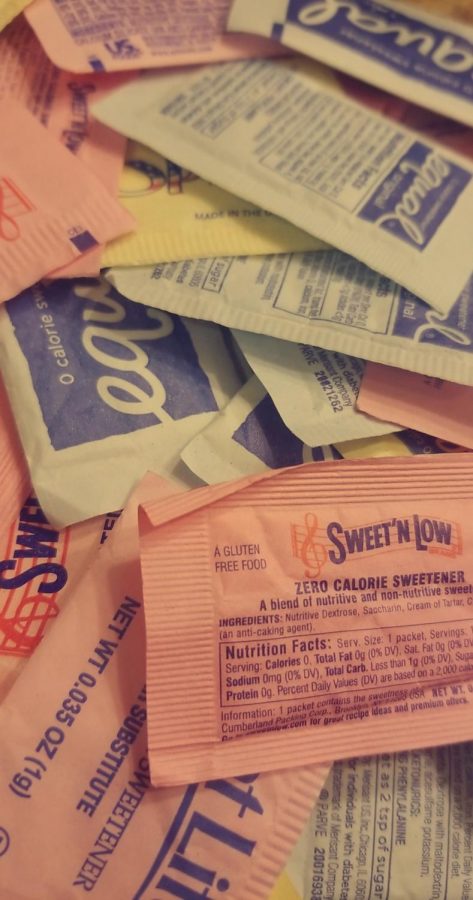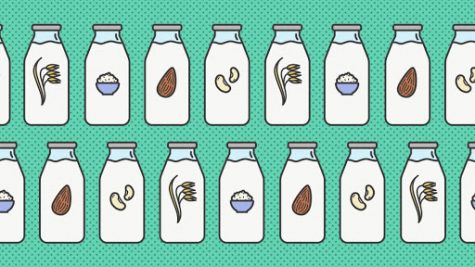Sugar vs. Sweetener: What’s the Difference?

Artificial sweeteners, such as Sweet’N Low and Splenda, contain no calories.
October 20, 2020
Sugar comes in many forms, disguises itself under different names and brings with it varying side effects. The sweet white granules we use for baking, and the powdered variety we use for topping and decorating, are two of the sugars found in most kitchens. Brown sugar, both light and dark, as well as raw sugar and molasses, are only a few more sources of added sugar in our diets.
Natural sugar, on the other hand, is found in fruits in the form of fructose, and in dairy products as lactose. These “sweets” often contain fewer grams of sugar per serving, and are accompanied by beneficial vitamins and nutrients.
Sugar, like most foods, contains calories. Artificial sweeteners, however, contain no calories, and were incorporated into the American diet in the 1900s. The first artificial sweetener, named Saccharin, was accidentally discovered; it was banned in fewer than 20 years. Over the years, as other sweeteners were developed, soda companies began including artificial sweeteners in their drinks. Cyclamate, more commonly known as Sweet’N Low, was introduced to the American public in the 1960s in both sugar packets and sodas (which included Tab and Diet Pepsi). While this artificial sweetener was found to be 30 to 50 times sweeter than regular sugar, it contained no calories. After learning that this chemical caused cancer when tested on rats, however, scientists set out to find another calorie-free sugar.
Aspartame was released as the next big sweetener and was an ingredient in Diet Coke throughout the 1980’s. Sucralose — marketed as Splenda — was also created as an artificial sweetener. Unlike the others, however, Splenda contains calories, and the body can partially break down the sweetener.
With so many sweet options available, the inevitable questions arise: is one better than the others? What are the side effects from consuming these sweeteners?
It’s important to note that an excess sugar intake — regardless of the type of sugar — can lead to obesity and issues with blood sugar levels. It has been theorized that consuming artificial sweeteners can lead to an imbalance in gut bacteria, heart attacks, and strokes, among other negative side effects.
Even worse, there are many unknowns with artificial sweeteners. As said, most artificial sweeteners were discovered accidentally, and many have been shown to produce negative side effects.
Finding sources of sugars that include known benefits, such as fruit, may be the best solution. While it may contain more calories, a bowl of strawberries has a wholesome taste, and won’t increase the likelihood of health complications.











